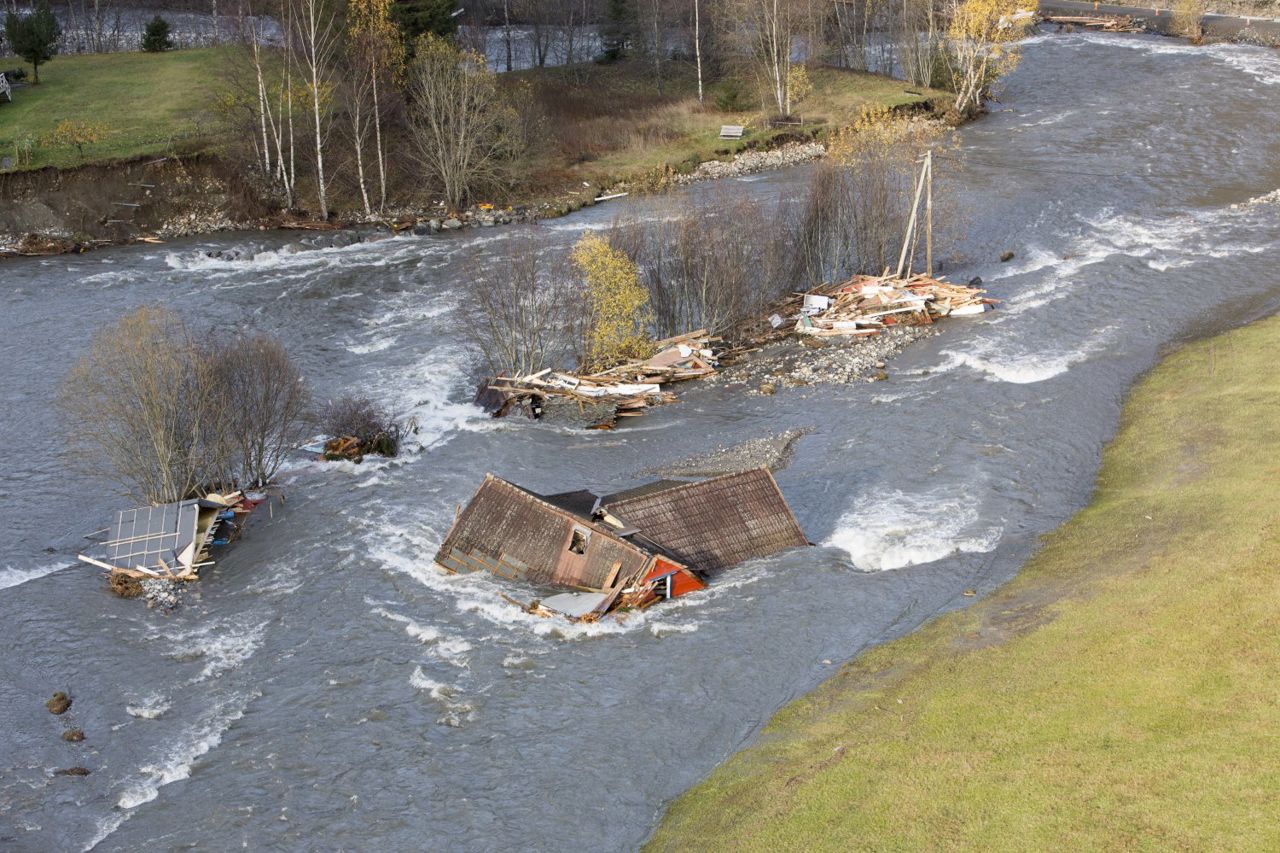
Climate change
The next decade will be a defining one for climate change, both in mitigation and adaptation. We are determined to use our business to accelerate the transition to renewable energy, while also using our expertise to help with adaptation efforts.
More than a century of renewable energy
We have been generating renewable energy for more than a century, originally through abundant Norwegian hydropower. However, over the last twenty years we have expanded our activities to include trading and optimisation of renewable power, development of wind, solar, grid stability, and green hydrogen projects - operating across more than 20 countries.
Going forward we will use our renewable energy expertise and capitalise on the shrinking costs of other technologies, such as solar and wind, to connect more people to renewable energy. We will continue to use the strengths of flexible hydropower to help balance more variable sources, and connect more end-users to renewable electricity.
100% of our profits are invested only in renewables as Statkraft leads the shift to a renewable energy world; renewing the way the world is powered.

We have been making clean energy possible for over a century, long before climate change was a crisis – and we’re the only company of our size to invest 100 per cent of our growth entirely in renewables. Pictured is a man with a turbine runner at Aura power plant in Norway.
How we relate to climate change
To keep our planet’s temperature below breaking point, meet growing demand, and close the energy gap for the near one billion people without access to electricity, renewables can’t be part of the solution. They must be the solution. The energy sector is responsible for around three quarters of global greenhouse gas emissions. Transitioning to a renewable energy system is therefore an imperative part of climate change mitigation throughout the world.
There is also a need for climate change adaptation. Our core business activities will be impacted by a changing physical climate and policy landscape. Changes in the availability of natural resources (e.g. precipitation, run-off and wind) can influence the profitability of our assets significantly. Future climate-related regulatory frameworks will also have an impact on our current and future operations and business opportunities.
Greenhouse gas emissions
Although we are a major provider of renewable power and heat, we also directly contribute to greenhouse gas emissions, primarily through our gas power plants. We see gas as an energy source for a transition period, where gas-fired power plants will replace coal and by this be a benefit for the environment. As renewable capacity is further expanded, the need for gas-fired plants will be reduced. We will therefore not expand our gas capacity further.
In addition, we have CO2 emissions related to other operation and construction activities. Statkraft has signed the Climate Neutral Now Pledge, an initiative launched by UN Climate Change. As part of this, emission reduction targets have been set and unavoidable emissions are offset through certified emissions reductions.
Climate change and water management
In the future, more extreme weather patterns will place water resources under increased stress. We are therefore working with integrated models for water management to prepare our hydropower installations for expected changes in precipitation and weather patterns. Our water management practices can also help mitigate and manage floods due to extreme weather conditions. We also participate in national and international projects to continuously improve the understanding of how climate change will affect hydrological resources.

Regulatory framework
Climate policies have a large impact on Statkraft. We follow national, European and global climate policy development closely to assess how they will impact us. It is also critical to understand the development of renewable energy and related technologies, as this will impact the pace of the energy transition and our commercial position. Thus, we invest significant resources in market analysis to have a robust basis for future investment and operation decisions.
Each year we develop a Low Emissions Scenario report where we present an analyse of the developments in the global energy markets.
Related content

Environment
As we lead the shift towards a renewable energy future, the number of energy installations will increase around the world. We are committed to managing the impacts on the environment caused by our activities in a responsible manner.
Read more

Low Emissions Scenario
The energy sector is in the midst of a rapid transition with profound technological, political and market-based changes. In order to deepen our understanding of market trends, Statkraft develops long-term scenarios that provide insight into how global energy markets could transition in the future.
Read more

Regulated watercourses and reservoirs can be effective protection measures against flood damage.
Hydropower: Flood control as civil protection
Climate change leads to more extreme weather with large amounts of precipitation over a short period. The reservoirs of hydroelectric power plants have proven vital in limiting flood damage.
Read more

Heavy water flow at Gressli dam in Tydal Municipality in Trøndelag County in 2011.
Hydropower: Safe energy in all weather
Record cold winters, dry summers and spring floods in the autumn. What does hydropower's flexibility mean in the age of extreme weather? The CEO of Statkraft explains.
Read more